The human cost of conflict in Ukraine, an eyewitness report
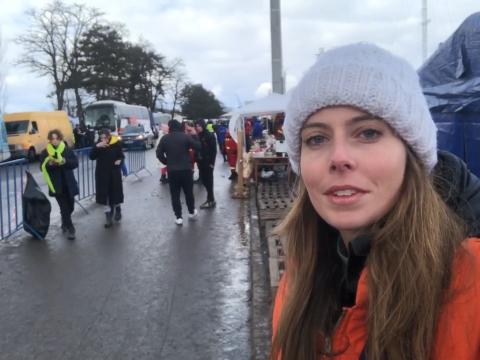
By Brianna Piazza, World Vision Emergency Communications specialist
As we cross the border from Romania into Ukraine, the line of people stretches for more than three kilometres. Three kilometres of unimaginable misery and suffering. Each person in that line has a story of heartbreak, of loved ones and lives left behind. I see it on their faces: Fear, sadness frustration and absolute exhaustion from days spent fleeing the unimaginable terror that’s rained down on them.
But in a sense, these are the lucky ones; the ones with the means to get out of the country, those able to collect a few precious belongings and flee to the border of Romania, Poland or Moldova.
For others, like 56-year-old Grandmother Iryna who I spoke to inside Ukraine, escape isn’t an option. She fled Kyiv when the bombs started falling from the sky. She was forced to leave her elderly parents and her husband behind as there simply wasn’t room in the car for everyone.
With her grandchildren sitting beside her, she tells me how they cried as the bombs rained down. Iryna is disabled and uses a crutch to get around - she stands little chance of survival if she had to run to escape fighting. She’s completely reliant on her children to care for her and right now is sheltering in a hospital in southern Ukraine where I visited this week.
Supplies there are running out and the small town, currently sheltered from the brutal fighting in other parts of the country, is already experiencing an influx of people seeking refuge and medical help. Doctor Mykola Stroich tells me that many of those arriving have flu-like symptoms and signs of trauma; they’re in need of urgent psychological first aid.
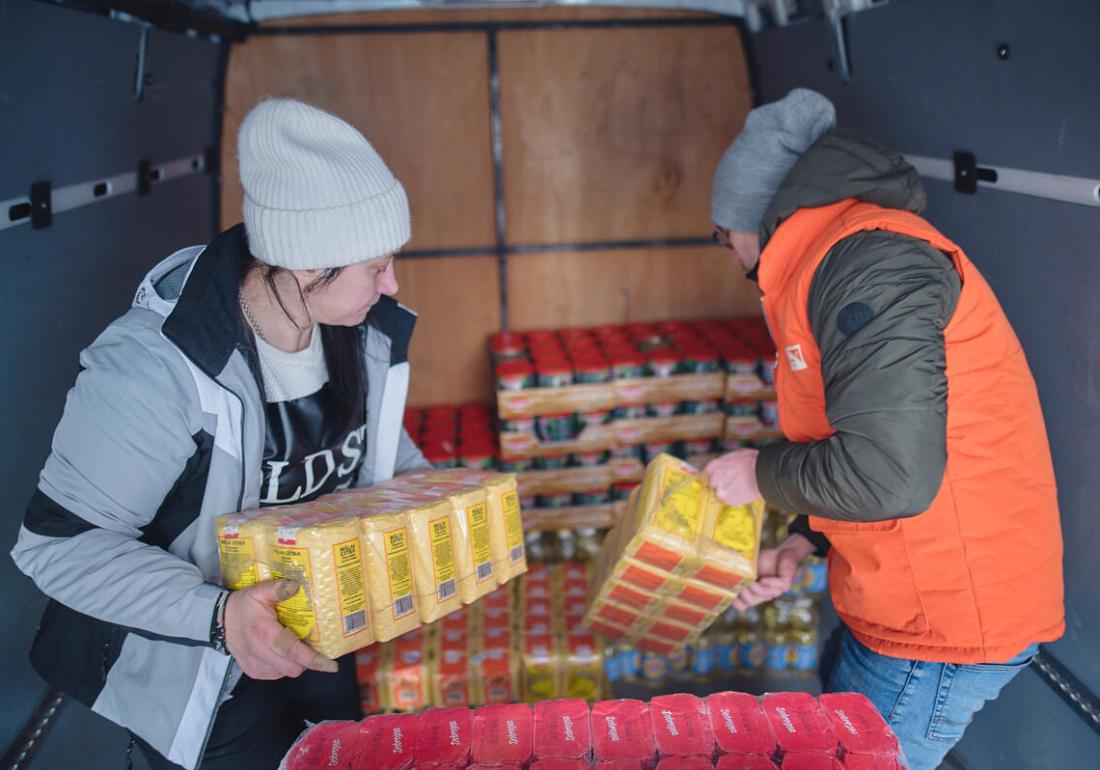
I was there with the World Vision team responding to an urgent plea from the hospital for much-needed food and medical supplies. The hospital is coming under added pressure as those from bombarded cities flock to other parts of the country as safe havens, to seek food and shelter. These are people who don’t have connections, don’t have money or the means to get across the border and are in desperate need of emergency assistance. Many are older, are sick or, like Iryna, have disabilities and travelling long distances is difficult.
Our delivery of sheets, towels, soap and disinfectant, as well as staple food items to hungry children and families was welcomed, but we know that hospital supplies are already dangerously low. This is just one hospital in a huge country which is rapidly running out of access to life-saving basic essentials as the conflict expands. I’m fearful that that food and medical supplies won’t be able to get through in the coming weeks, particularly as numbers of people needing emergency support increases.
At the hospital I also met Olga and her 15-month-old son, David. They fled Kyiv by car towards the border when fighting broke out, but when David’s temperature spiked she aborted her plans and bought him here to the hospital for urgent care. As I sat and spoke to her, I couldn’t help but notice the enormous toll that the past few days has had on her. Her face was drawn and tired, dark rings under her eyes. The sheer exhaustion of fleeing bombs and gunfire with a sick toddler, etched on her face.
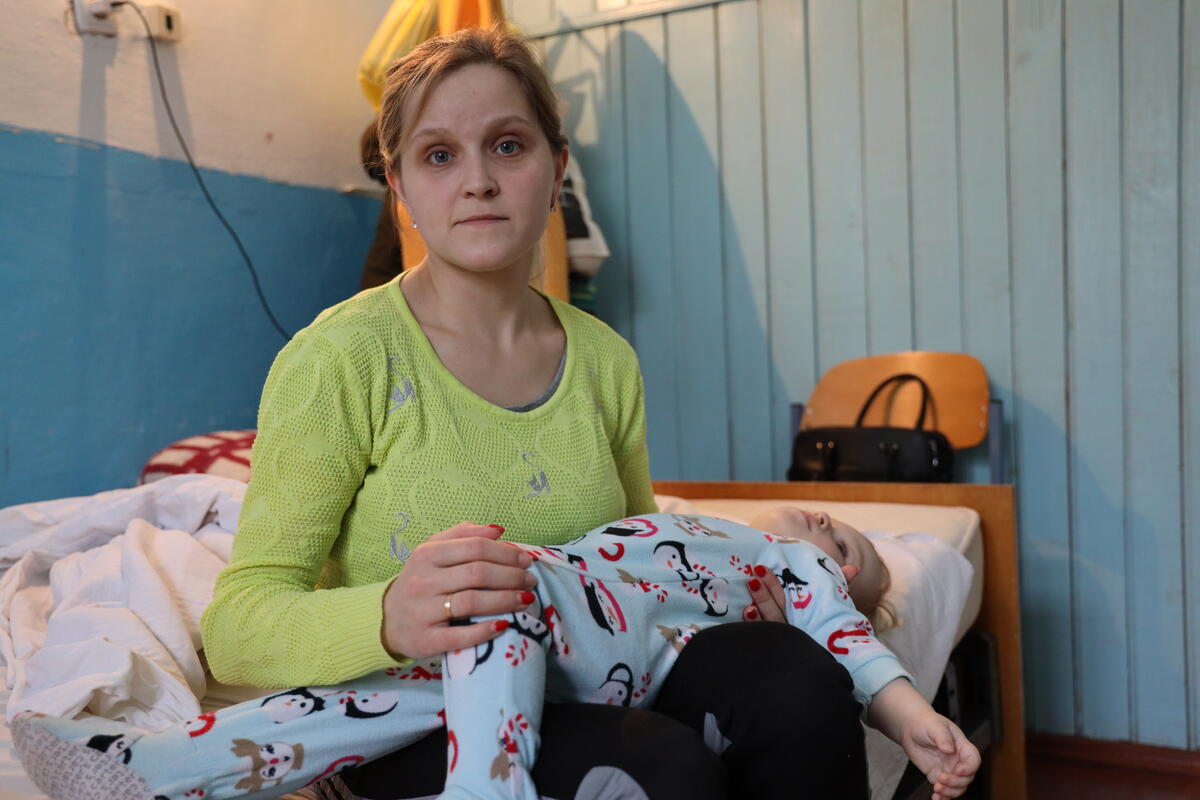
Their chance of leaving is now diminishing as the conflict intensifies and humanitarian corridors become cut off. It’s one of the devastating ramifications of this conflict; children play no part in creating any of this mess, but they're the ones bearing the consequences.
Back on the border, those I’m speaking with are becoming increasingly desperate. Those who were able to flee early had time to collect and organise a few previous possessions, but many of those I’m seeing this week have fled with just the clothes on their back and their documents. Others have had to leave without family members because there isn’t space. I’ve heard of grandparents saying ‘you go, come back and get us when it’s safe, just get the young ones out’.
I can't imagine having to make that choice, having to say, ‘okay, there's five spots in the car and there is six of us, who stays behind?’. It's devastating.
You see kids crying because they miss their dad, because he has had to stay back home in a war zone, or you see families split apart because some of the older brothers are ‘of age’. I can't even begin to imagine going through that. There are so many of these stories, so many instances of families being ripped apart. It’s so chaotic and children don’t understand why this is happening.
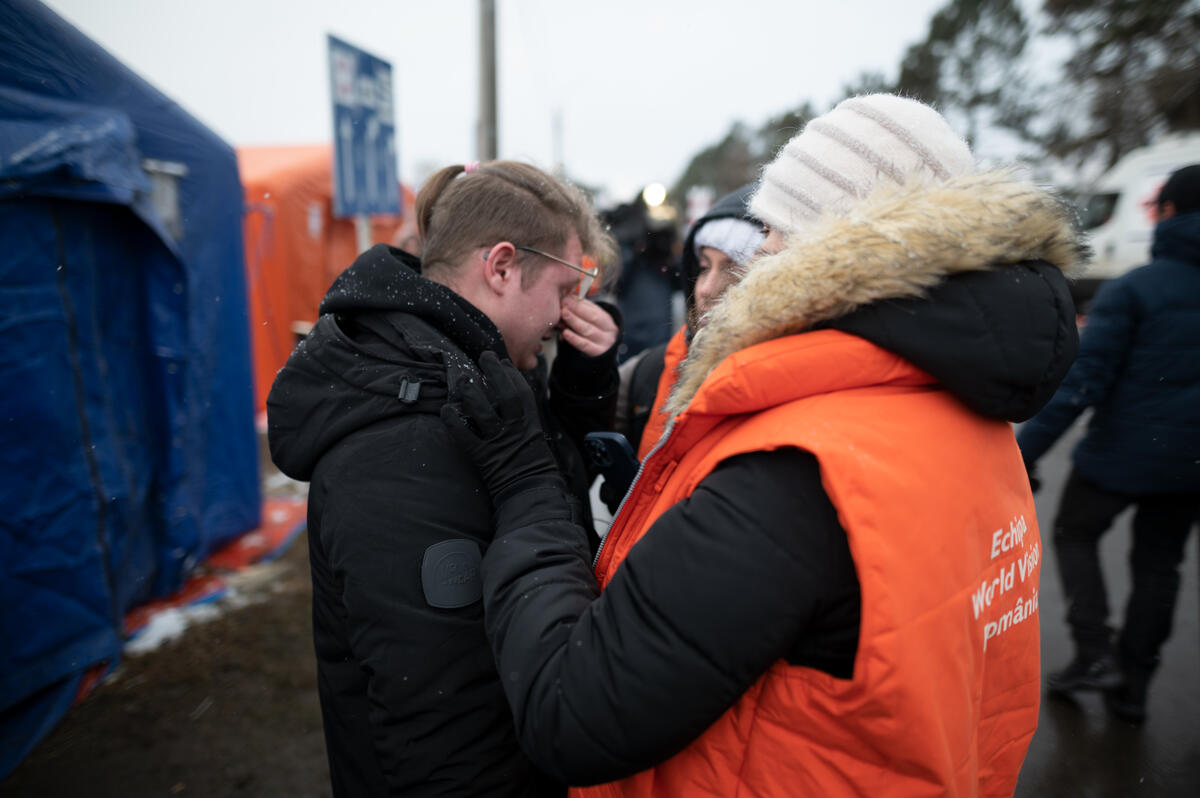
I met a teenager called *Ivan, whose grandfather dropped him at the border to relative safety before going back to be with his elderly wife. With snow falling around us, Ivan told me about how worried he is for all his friends left behind in Ukraine. On his own and between tears he tells me 'I love my friends...’ He trails off and manages to compose himself before saying ‘...they could die'. He removes his glasses and begins to sob. That's something that no 17-year-old should ever have to think about. These children are being forced to grow up so fast, because of what they've been through and what they've witnessed. It's so unfair and tragic that the course of a kid’s life can be so drastically altered by something that's so completely outside of their control. And they have to live with the consequences of that for the rest of their lives.
As well as providing food, water and heating to refugees fleeing the conflict, World Vision has set up activities for children when they arrive across the border. At the very least, if there are kind, caring professionals there looking after their children, their parents can start to plan their next move - where they will sleep that night, how they will get food in the coming days, how they might try to set up their lives with nothing but the clothes on their back. Providing a safe space for children to play brings relief for parents but also provides a sense of normality for children. For kids who have had their lives torn from them in an instant, something as simple as play is so important.
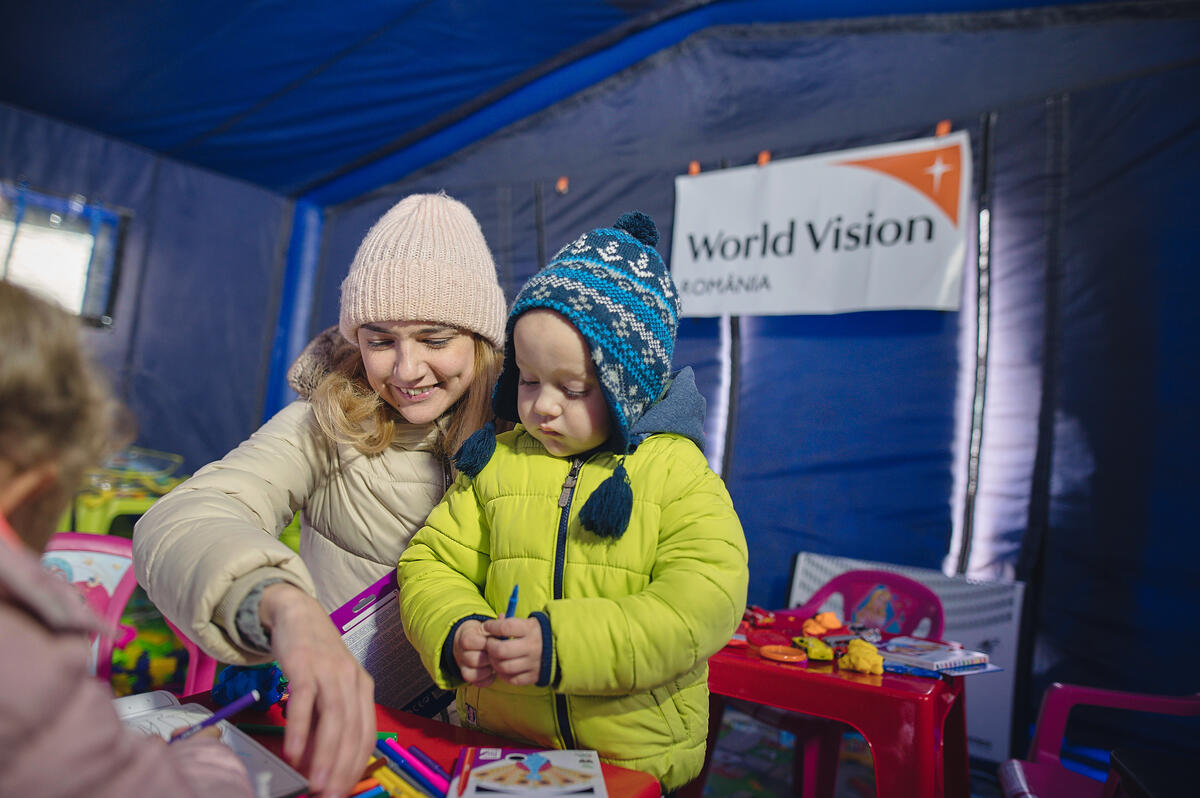
We’re identifying children and parents who need psychosocial support. As you can imagine, there are many. To be honest, I can’t fathom how anyone could escape the horrors that we are all seeing in the news without enduring scars. The people I talk to every day are certainly carrying with them incredible trauma which no human should ever have to bear.
As I left the border last night, I stopped in my tracks. There with this mum was a boy, about three years old, crying for his dad who they had left behind to fight. Some mothers have told me that they are pretending that they’re going on holiday, to try to save their children from the cruel reality that they face. But for this child, and so many others, there is no hiding how much their lives have been torn apart.
*Name changed for his protection.
World Vision has over 70 years of experience working in the world’s most difficult regions. Since the conflict began, we have rapidly begun responding in Romania and Ukraine and will continue to respond to the needs of the over 3 million people have fled Ukraine.
*Ivan's name has been changed.
You can help:
Donate to help children and families forcibly displaced by the crisis in Ukraine.
Pray for peace to be restored quickly and that children and families will be protected from harm.
Advocate add your voice to call for peace in Ukraine and protection for affected children and their families.
This story was first published in the New Zealand Herald